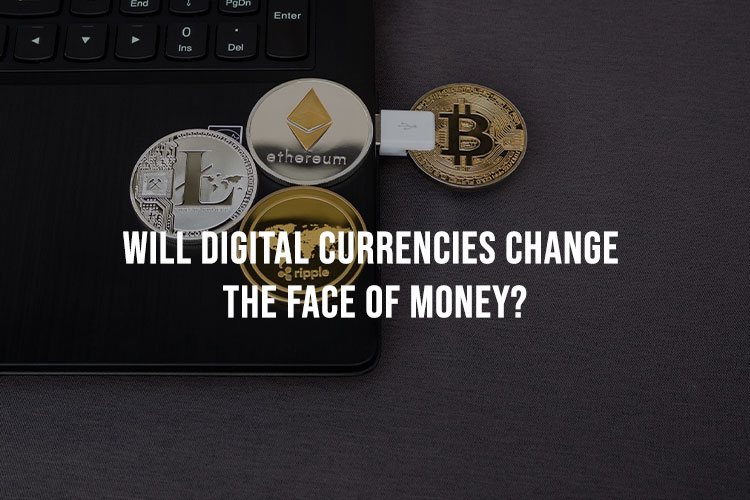We have witnessed tremendous growth in cashless transactions over the last few years. Now, countries are launching their digital currencies to boost their economy, reduce the cost of payment services, increase competition among financial institutions, and provide their customers with a swift and convenient payment medium. As per Atlantic Council’s CBDC tracker, 91 countries are researching and preparing to issue their own digital currency. Nine countries have already introduced their digital currency; eight of these are located in the Caribbean.
Governments across the world are researching, evaluating and conducting trials to roll out the digital forms of their currencies. Some countries have launched their digital currency to counter private cryptocurrency, while others want more control over the economy.
However, information on India’s digital currency is limited. However, the Finance Minister, Nirmala Sitharaman, has said that CBDC (Central Bank Digital Currency) will give a push to the economy and will lower the cost of India’s currency management system.
Possibly, CBDC can be used for socially-bound causes and other targeted payments in a country. In such instances, the central bank can pay pre-programmed CBDC to specified recipients, which may be accepted exclusively for certain purposes. For example, as a direct benefit transfer, pre-programmed CBDC might be issued for LPG subsidies (DBT).
Understanding digital currency
Digital currency is money that is exclusively available in digital or electronic form. It is also known as electronic money, digital money, e-currency, or cybercash. These currencies are only accessible through computers or mobile phones since they exist only in electronic form. Typical digital currencies do not require mediators and are frequently the most cost-effective way to trade currencies.
Digital currencies are intended for peer-to-peer transactions, which eliminates all parties besides the two persons or parties performing the financial transaction. It is owned and controlled by you in a digital wallet, and eliminates the need for a financial institution to keep your money on your behalf.
Digital transactions are different from digital currencies. When working with digital transactions, you authorise a merchant to “draw” money from your account, which involves financial intermediaries. For instance, a regular Visa transaction includes five parties: the credit card network provider, the vendor, the acquirer (the bank that enables payments to the vendor), the issuer (financial institution of the cardholder), and the cardholder.

Streamline all Back End Operations so that you can save Time & Money and focus on GROWING YOUR BUSINESS.
Accounting & Tax: Let us crunch the numbers, so you can focus on growing your business.
Virtual CFO: Experience financial success with a Virtual CFO by your side.
Internal Audit: Gain peace of mind with our comprehensive internal audit services.
Company Secretary: Let our experienced Company Secretary guide you through corporate compliance effortlessly.
Countries that are working on developing their own digital currency
Countries are seeking to preserve key aspects of their traditional monetary and financial systems while experimenting with new digital forms of money. Following are countries that are thinking and planning their own digital currency.
India
According to the Indian government’s declaration in February 2022, India plans to introduce a state-backed digital currency the following year. The “digital rupee” will be based on blockchain technology and will be operational by the end of March 2023. The Reserve Bank of India will back it up.
The statement comes after a series of contradictory announcements from the country’s central bank, beginning in 2018 when it threatened to disallow the trading of all private cryptocurrencies in India. The Supreme Court of India overturned that law in March 2020.
Russia
The Bank of Russia made the first statement on the launch of the digital ruble in October 2017. According to the country’s central bank, a CBDC would lower the cost of payment services, encourage competition among financial institutions, provide a convenient method of payment to individuals in areas with limited access to financial infrastructure, and lessen Russia’s reliance on the US dollar.
Following Russia’s invasion of Ukraine in February 2022, several broadcasters suggested that Russia may utilise cryptocurrencies to avoid sanctions imposed by other countries. A digital currency would very certainly increase Russia’s capacity to avoid international sanctions.
Sweden
Sweden is taking steps towards testing its digital money, known as the e-krona. The country is planning to advance the testing from simulated participants to an environment with external participants. The Riksbank in Sweden has created a proof of concept and is analyzing the technological and regulatory implications of CBDC, or central bank digital currency.
One of the primary goals of this project is to ensure intensive access to digital money, e-krona, in the future. The Swedish government wants to protect senior citizens and individuals with specific disabilities from the negative effects of a cashless society. With the advent of digital money, it’s becoming increasingly important to ensure that everyone has access to financial services and isn’t excluded from the economy.
By testing its digital money, e-krona, Sweden is taking a proactive approach to developing a digital currency that is secure, reliable, and accessible to all. The testing process will provide valuable insights into the potential benefits and drawbacks of digital money and help Sweden make informed decisions about how to move forward with this technology.
As the use of digital money continues to grow, it’s essential to ensure that everyone has access to financial services and that no one is left behind. By developing a digital currency that is inclusive and accessible, Sweden is setting an example for other countries to follow and helping to create a more equitable and sustainable financial system.
Ukraine
The National Bank of Ukraine has been working hard to make digital money a reality in the country since 2016 and is now ready for pilot testing of its own CBDC, or central bank digital currency. As per Ukraine’s deputy minister for digital transformation, Oleksandr Bornyakov, this is the next step toward the digitization of financial infrastructure and payment systems in Ukraine.
The launch of digital money in Ukraine has the potential to revolutionize the country’s financial system, making transactions faster, cheaper, and more secure. With digital money, Ukrainians will be able to make payments and transfer funds instantly, without the need for intermediaries or costly transaction fees.
Moreover, digital money will also help to reduce the country’s reliance on cash, which can be costly to produce, transport, and secure. By moving towards a cashless society, Ukraine can reduce the risks associated with cash-based transactions, such as theft and counterfeiting, and create a more efficient and transparent financial system.
The pilot testing of Ukraine’s digital money is an exciting development that could have significant implications for the country’s economy and financial infrastructure. If successful, it could pave the way for the widespread adoption of digital money in Ukraine and help to create a more inclusive and accessible financial system for all Ukrainians.
Eurozone
Last July, the European Central Bank (ECB) said that it is actively working towards the creation of the digital euro. The ECB, as the currency’s custodian, has been closely monitoring the emergence of private cryptocurrencies such as Bitcoin as the COVID-19 pandemic boosted the transition from physical cash. The European Commission has declared that a bill for the digital version of the euro will be introduced in 2023.
After multiple trials, China is set to issue the digital Yuan
China has already tested the digital yuan in many Chinese cities, with more than $8 billion in transactions recorded in the third quarter of 2021. China’s initiatives have also prompted other governments to consider developing their own digital currency.
While China’s digital currency is a remarkable project with many potential benefits, such as payment convenience and efficiency, privacy is not one of them. If anything, the digital yuan will provide the government with greater visibility over its citizens’ financial dealings.
China already has an advanced yet sophisticated mobile payment system led by WeChat Pay and Alipay. Companies now collect a lot of private financial data, but the digital yuan will make it considerably easier for the government to obtain that data. The Chinese government can obtain financial data from payment companies, but with digital yuan, they will not need to go through that extra step because they will already have direct access to that data.
Is digital currency the future of money?
With many probable pros and cons of digital currency, we’re now at a crossroads. Physical cash is still extensively used, and governments and institutions have yet to make the transition to issuing CBDC. As a significant economy globally, China is set to issue its digital Yuan after multiple trials. We have covered this in detail in Part II of this write-up. Move to Part II to explore the potential benefits and drawbacks of Chinese digital currency, how China’s transition to digital currency will impact the global economy and how the digital Yuan might help China counter US dollar domination in cross-border transactions.



